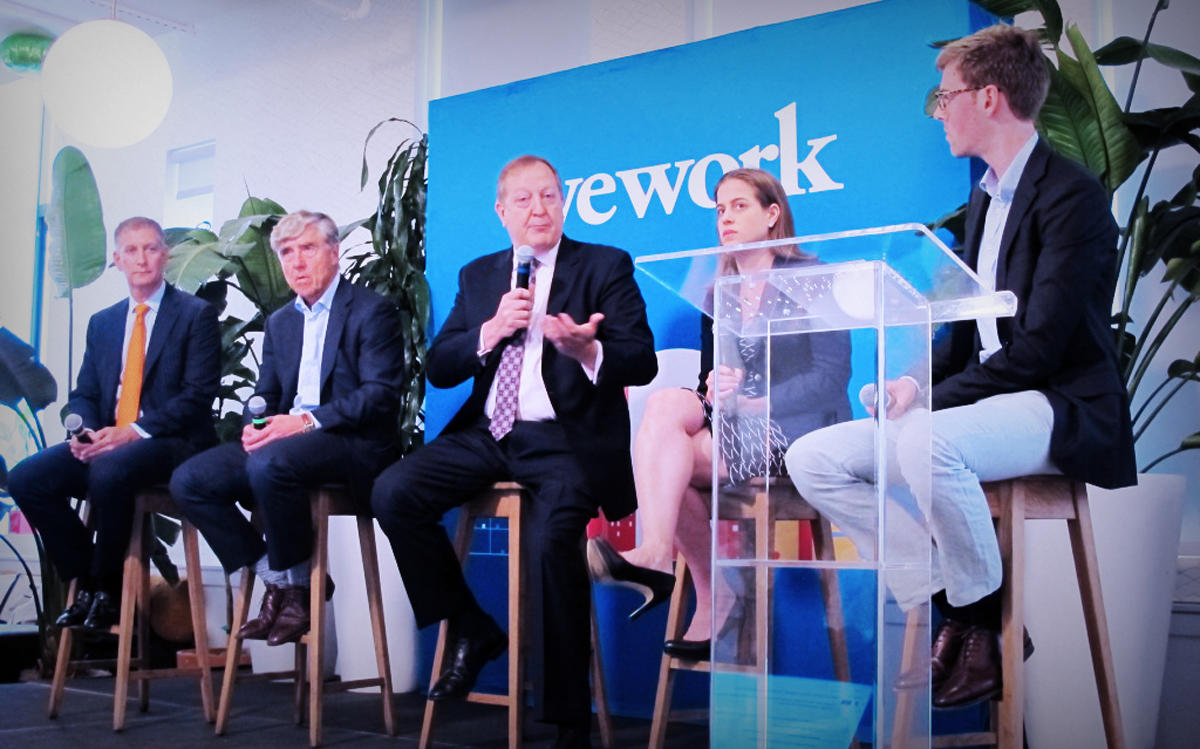Trending
WeWork “cracked the code,” but has it hit a ceiling?: panel
Panel discussed how growing coworking industry has changed real estate so far

At first, landlords didn’t want to lease to WeWork. Now, the company is in Class A office buildings across the globe. And in the future, it could end up partnering with landlords.
“Partnering with WeWork is something we’ve thought about,” said Columbia Property Trust CEO Nelson Mills, explaining that it would be beyond simply leasing space to the co-working company. “Certainly, the industry has been changing, and WeWork is a part of that.”
Mills sat on a panel Tuesday morning in WeWork’s Chelsea building at 115 West 18th Street along with Silverstein Properties CEO Marty Burger, Boston Properties executive vice president John Powers and HR&A Advisors partner Kate Wittels. The Real Deal senior reporter Konrad Putzier moderated the discussion, which focused largely on the future of the rapidly growing company and how it has impacted the real estate industry.
Powers described WeWork as an “aggregator,” picking up demand that would otherwise not be in the office marketplace, given how hard it has been historically for smaller tenants to find deals.
“This was the most poorly served sector of the office market for my entire career,” he said. “No one wanted to lease to small tenants. No landlords wanted to lease to small tenants. No brokers I knew wanted to deal with small tenants. No lawyers wanted to do leases for small tenants, and no construction people wanted to put up space for small tenants. So they cracked the code on the aggregation.”
Powers maintained that the stigma of having a co-working tenant in a building was gone—although Burger still declined to answer Putzier’s first question about whether he would prefer WeWork or Goldman Sachs as an anchor tenant for 2 World Trade Center, laughingly describing it as “not a fair question.”
“WeWork can go after those enterprise tenants and sell that WeWork membership, and we can go after the traditional tenants and do something together on that,” he said.
WeWork has grown astronomically in recent years. It is looking to raise money at a $35 billion valuation and is spending $850 million to buy the Lord & Taylor flagship store for its new global headquarters.
Powers said that companies wanting to establish their own cultures could play a role in eventually limiting WeWork’s growth, as they would look to establish their own independent identities outside of just being a tenant for a unicorn.
“They may want to do that within a WeWork buildout,” he said, “but they may not.”




